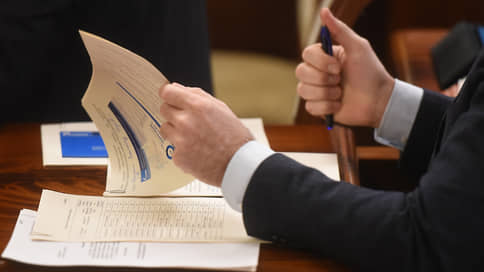The Ministry of Economy is preparing a regulatory framework for valuation activities
[ad_1]

The Ministry of Economy is preparing a regulatory framework for valuation activities as part of the transition to the EAEU single market of services scheduled for January 1, 2025. The draft law developed by the department establishes the conditions for the admission of Russian appraisers to work in the EAEU states and regulates the activities of specialists from other countries of the union in the domestic market. Experts believe that a better understanding of the value of assets in the EAEU countries will be able to stimulate mutual investment. The appraisers themselves see the risks of penetration into the Russian market by appraisal companies whose work standards will be significantly lower than Russian ones.
“Kommersant” got acquainted with the draft amendments to the law “On valuation activities” developed by the Ministry of Economy. A single market for services, including property valuation in the EAEU countries, should start operating from January 1, 2025, subject to the implementation by the countries of the “five” of common approaches to it. The draft law of the Ministry of Economy defines the conditions for the admission of Russian appraisers and appraisal companies to work on the territory of the EAEU states, as well as the specifics of regulating the activities of such organizations from other countries of the union in the Russian Federation.
The general approach to the conditions for the implementation of valuation activities in the EAEU was approved at a meeting of the Supreme Eurasian Economic Council in December 2021. He, in particular, guaranteed non-discriminatory control over the work of “foreign” appraisers. Sanctions against the Russian Federation have added relevance to cooperation within the union, according to the head of the RSPP, Alexander Shokhin (see “Kommersant” dated June 8), mutual recognition of assessment procedures is one of the possible measures to remove barriers to access to the markets of the EAEU countries.
According to the amendments, an appraiser who has professional qualifications and the necessary permission, recognized throughout the Union, will be able to work on the single market.
At the same time, services can be provided only in relation to the objects contained in the comparative list (it is coordinated and approved by the EAEU states). Information about an appraiser who wants to work in another member country of the union must be included in the register of service providers – the lists are formed by the authorities of the country of registration of the appraiser. Companies from other countries of the union will be able to enter into agreements with self-regulatory organizations (SROs) of appraisers to audit their work and join these associations.
Anton Vovk, a member of the Council for Appraisal Activities under the Ministry of Economy, notes that the project is more about organizing the work of appraisers, rather than valuation rules. “Another question is that, perhaps, thanks to Russian appraisers, we will better understand the value of assets, for example, in Kazakhstan, and this may stimulate investment,” he says. For banks as consumers of appraisal services, it is important to expand competition in this market and maintain the required level of their quality, said Victor Roslov, Chairman of the Pledge and Valuation Committee of the Association of Banks of Russia. “Today, the mechanisms for monitoring the quality of reports at the level of SROs of appraisers and the interaction of consumers with SROs are well developed, and therefore it is advisable to use this practice to control the activities of appraisers from other states,” he says.
The appraisers themselves were somewhat wary of the bill. Maxim Skatov, President of the SRO “Union of Appraisers’ Federation” notes that in order to become a member of the SRO, the service provider must provide an extract from the register of suppliers obtained in the country of its registration, that is, such appraisers do not need to meet the requirements of the Russian Federation. “This creates discriminatory conditions for Russian appraisers who are members of SROs, who are required to pass a qualification exam every three years,” says Maxim Skatov. “There are risks of flooding the market with appraisal companies whose work standards will be significantly lower than domestic ones.”
[ad_2]
Source link






